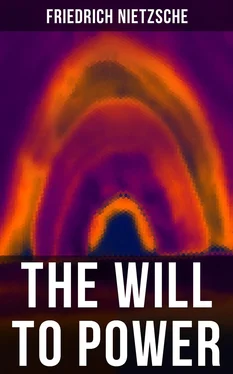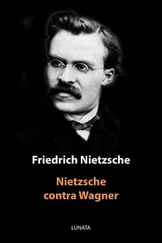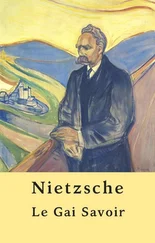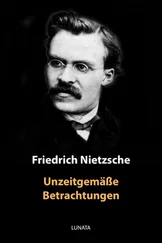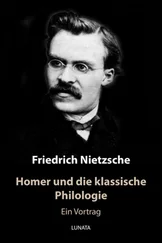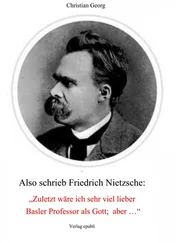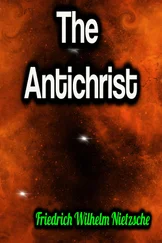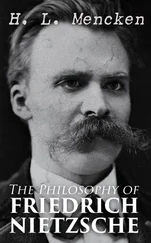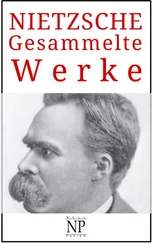237.
On one side there are the serious, the dignified, and reflective people: and on the other the barbarous, the unclean, and the irresponsible beasts: it is merely a question of taming animals —and in this case the tamer must be hard, terrible, and awe-inspiring, at least to his beasts.
All essential requirements must be imposed upon the unruly creatures with almost brutal distinctness—that is to say, magnified a thousand times.
Even the fulfilment of the requirement must be presented in the coarsest way possible, so that it may command respect, as in the case of the spiritualisation of the Brahmins.
The struggle with the rabble and the herd. If any degree of tameness and order has been reached, the chasm separating these purified and regenerated people from the terrible remainder must have been bridged....
This chasm is a means of increasing self-respect in higher castes, and of confirming their belief in that which they represent—hence the Chandala. Contempt and its excess are perfectly correct psychologically—that is to say, magnified a hundred times, so that it may at least be felt.
238.
The struggle against brutal instincts is quite different from the struggle against morbid instincts; it may even be a means of overcoming brutality by making the brutes ill. The psychical treatment practised by Christianity is often nothing more than the process of converting a brute into a sick and therefore tame animal.
The struggle against raw and savage natures must be a struggle with weapons which are able to affect such natures: superstitions and such means are therefore indispensable and essential.
239.
Our age, in a certain sense, is mature (that is to say, decadent), just as Buddha's was.... That is why a sort of Christianity is possible without all the absurd dogmas (the most repulsive offshoots of ancient hybridism).
240.
Supposing it were impossible to disprove Christianity, Pascal thinks, in view of the terrible possibility that it may be true, that it is in the highest degree prudent to be a Christian. As a proof of how much Christianity has lost of its terrible nature, to-day we find that other attempt to justify it, which consists in asserting, that even if it were a mistake, it nevertheless provides the greatest advantages and pleasures for its adherents throughout their lives:—it therefore seems that this belief should be upheld owing to the peace and quiet it ensures—not owing to the terror of a threatening possibility, but rather out of fear of a life that has lost its charm. This hedonistic turn of thought, which uses happiness as a proof, is a symptom of decline: it takes the place of the proof resulting from power or from that which to the Christian mind is most terrible—namely, fear. With this new interpretation, Christianity is, as a matter of fact, nearing its stage of exhaustion. People are satisfied with a Christianity which is an opiate, because they no longer have the strength to seek, to struggle, to dare, to stand alone, nor to take up Pascal's position and to share that gloomily brooding self-contempt, that belief in human unworthiness, and that anxiety which believes that it "may be damned." But a Christianity the chief object of which is to soothe diseased nerves, does not require the terrible solution consisting of a "God on the cross"; that is why Buddhism is secretly gaining ground all over Europe.
241.
The humour of European culture: people regard one thing as true, but do the other. For instance, what is the use of all the art of reading and criticising, if the ecclesiastical interpretation of the Bible, whether according to Catholics or Protestants, is still upheld!
242.
No one is sufficiently aware of the barbarity of the notions among which we Europeans still live. To think that men have been able to believe that the "Salvation of the soul" depended upon a book!... And I am told that this is still believed.
What is the good of all scientific education, all criticism and all hermeneutics, if such nonsense as the Church's interpretation of the Bible has not yet turned the colours of our bodies permanently into the red of shame?
243.
Subject for reflection : To what extent does the fatal belief in "Divine Providence"—the most paralysing belief for both the hand and the understanding that has ever existed—continue to prevail; to what extent have the Christian hypothesis and interpretation of Life continued their lives under the cover of terms like "Nature," "Progress," "perfectionment," "Darwinism," or beneath the superstition that there is a certain relation between happiness and virtue, unhappiness and sin? That absurd belief in the course of things, in "Life" and in the "instinct of Life"; that foolish resignation which arises from the notion that if only every one did his duty all would go well—all this sort of thing can only have a meaning if one assumes that there is a direction of things sub specie boni. Even fatalism, our present form of philosophical sensibility, is the result of a long belief in Divine Providence, an unconscious result: as though it were nothing to do with us how everything goes! (As though we might let things take their own course; the individual being only a modus of the absolute reality.)
244.
It is the height of psychological falsity on the part of man to imagine a being according to his own petty standard, who is a beginning, a "thing-in-itself," and who appears to him good, wise, mighty, and precious; for thus he suppresses in thoughts all the causality by means of which every kind of goodness, wisdom, and power comes into existence and has value. In short, elements of the most recent and most conditional origin were regarded not as evolved, but as spontaneously generated and "things-in-themselves," and perhaps as the cause of all things.... Experience teaches us that, in every case in which a man has elevated himself to any great extent above the average of his fellows, every high degree of power always involves a corresponding degree of freedom from Good and Evil as also from "true" and "false," and cannot take into account what goodness dictates: the same holds good of a high degree of wisdom—in this case goodness is just as much suppressed as truthfulness, justice, virtue, and other popular whims in valuations. In fact, is it not obvious that every high degree of goodness itself presupposes a certain intellectual myopia and obtuseness? as also an inability to distinguish at a great distance between true and false, useful and harmful?—not to mention the fact that a high degree of power in the hands of the highest goodness might lead to the most baleful consequences ("the suppression of evil"). In sooth it is enough to perceive with what aspirations the "God of Love" inspires His believers: they ruin mankind for the benefit of "good men." In practice, this same God has shown Himself to be a God of the most acute myopia, devilry , and impotence , in the face of the actual arrangement of the universe, and from this the value of His conception may be estimated. Knowledge and wisdom can have no value in themselves, any more than goodness can: the goal they are striving after must be known first, for then only can their value or worthlessness be judged— a goal might be imagined which would make excessive wisdom a great disadvantage (if, for instance, complete deception were a prerequisite to the enhancement of life; likewise, if goodness were able to paralyse and depress the main springs of the great passions)....
Читать дальше
